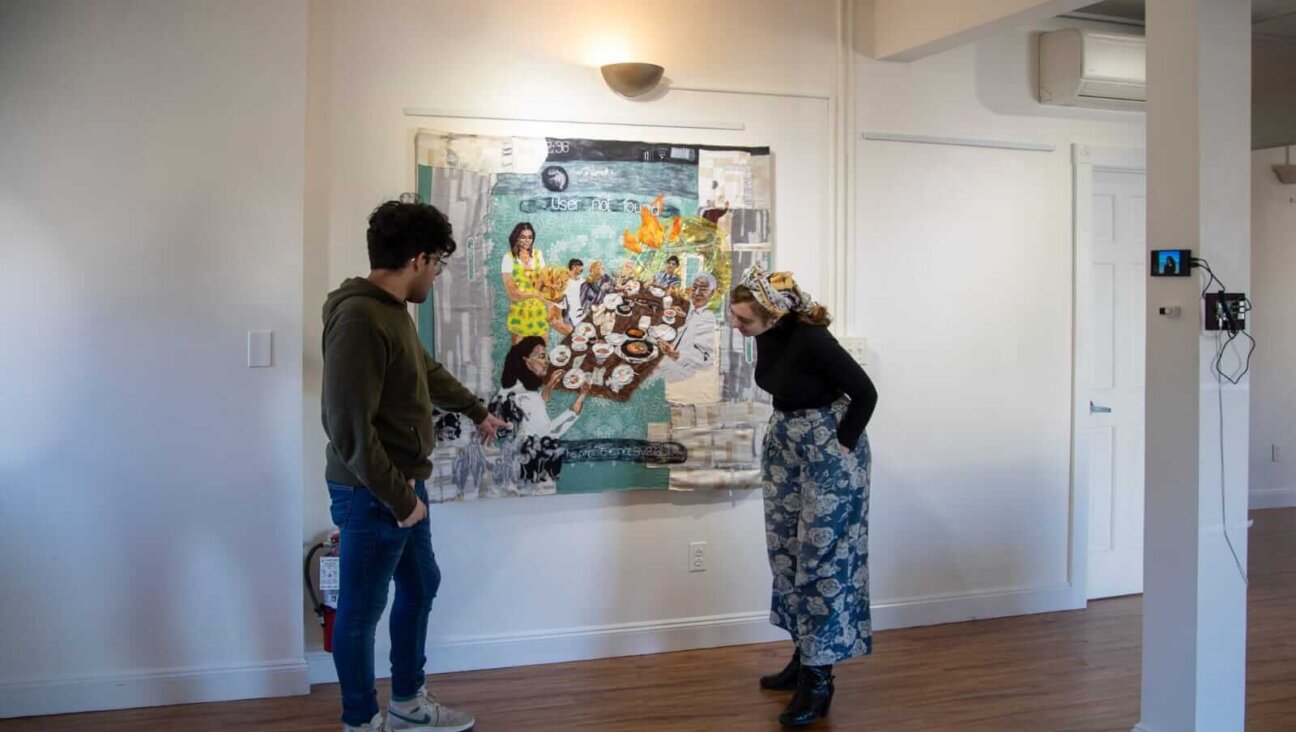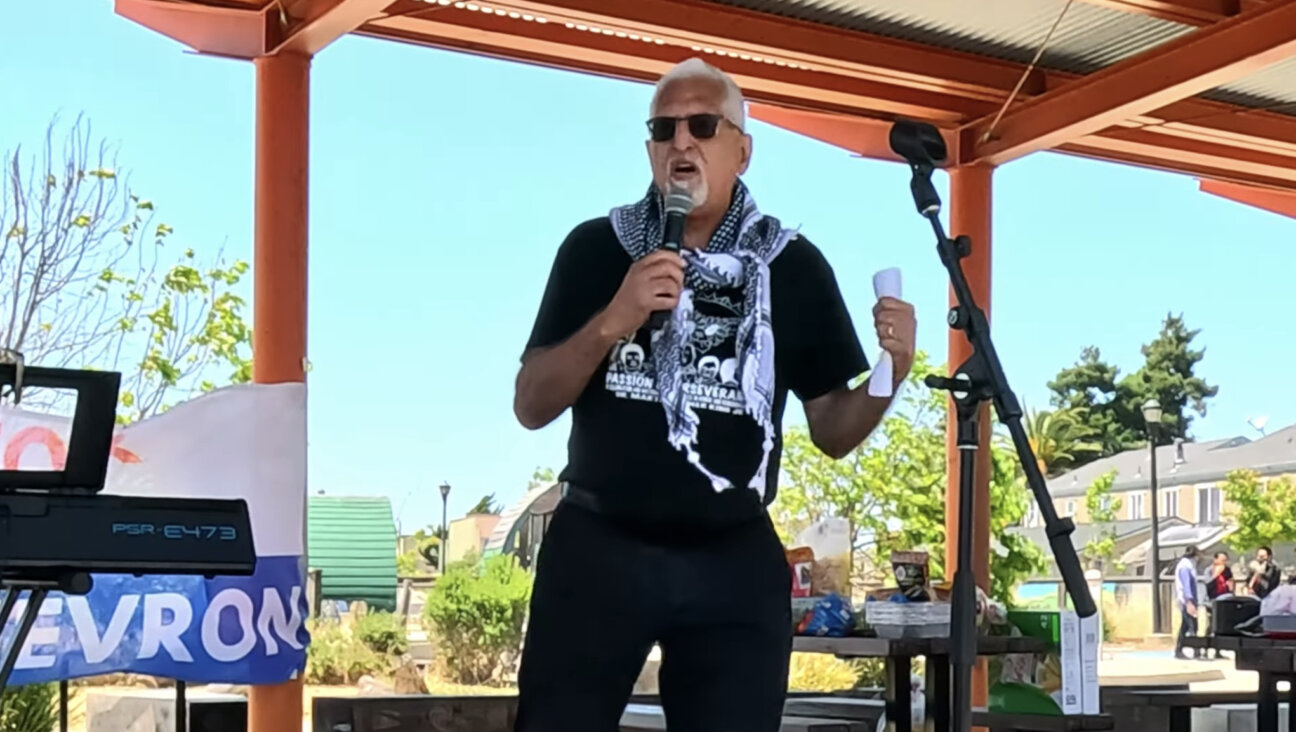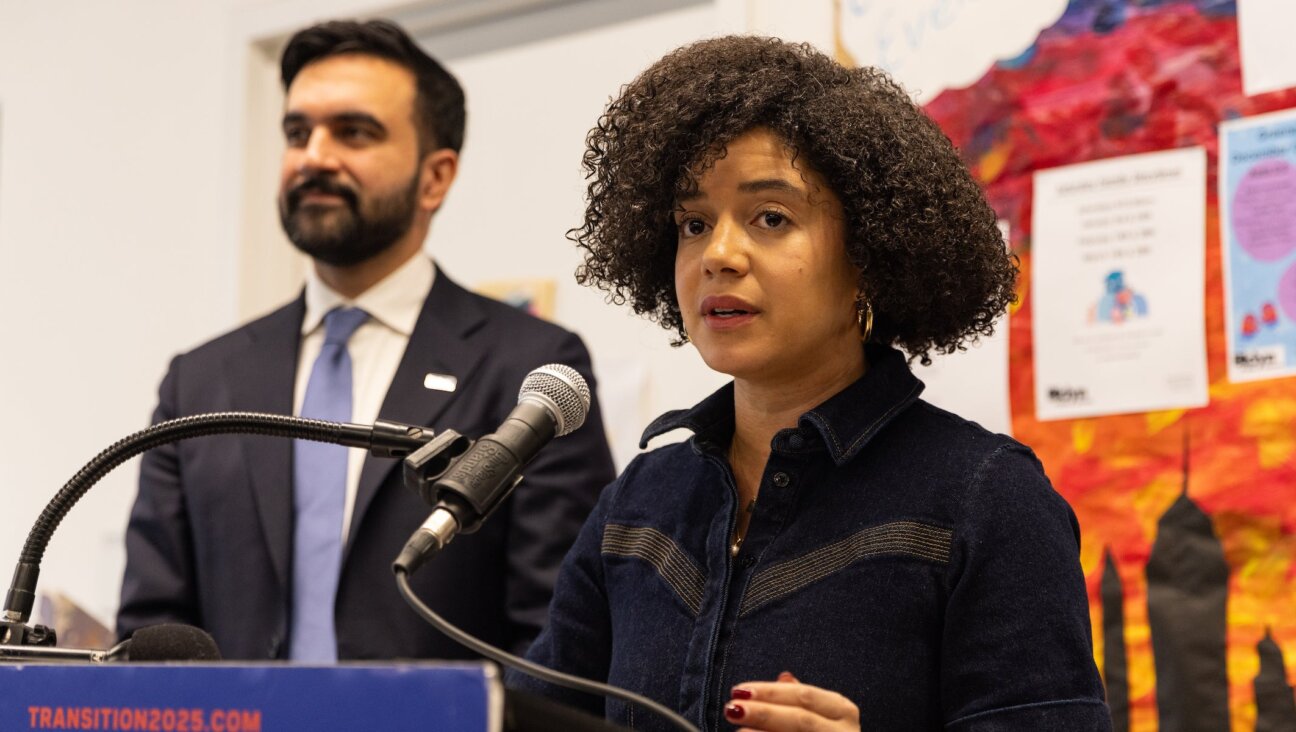The Yiddishe Mame of Feminism
Mistress of Herself: Speeches and Letters of Ernestine L. Rose, Early Women’s Rights Leader
Edited by Paula Doress-Worters
The Feminist Press of the City University of New York, 328 pages, $18.95.
That the great foremothers of feminism, the first wave of the movement, included in their midst an outspoken Polish Jew is not a fact often revealed in what meager suffragist history is passed along. Amid the large-looming names of the women’s suffrage movement in America, such as Elizabeth Cady Stanton, Lucretia Mott and the Grimké sisters, Ernestine L. Rose is a figure far less known, despite having worked with all these women and with many of the big names of the free-thought, abolitionist and feminist movements. Rose was unusual for both her time and place, but she was firm in her beliefs, blunt with her opinions and, most important, a fiery public speaker.
Rose’s collected speeches are now available in book form, as “Mistress of Herself: Speeches and Letters of Ernestine L. Rose, Early Women’s Rights Leader.” The book’s editor, Paula Doress-Worters, provides a valuable introduction in which she not only offers a contextual backdrop for Rose’s oratory and writing, but also specifically addresses the ways in which Rose was — and was not — a Jewish feminist leader throughout her life.
And what a life she led. The daughter of a rabbi, Rose came to worldly Berlin from Poland for secular studies. She soon moved on to London, where she encountered the teachings of Robert Owen. Owenism, an ideology to which Rose would proudly lay hold her entire life, was a form of communitarianist socialism. Fiercely anti-religion, egalitarian and community-minded, Owenists sought to create a New Moral World, and Rose believed deeply in this goal the whole of her life, bringing the Owenist message with her when she moved with her husband to New York City’s Lower East Side in the 1830s.
And in drawing the obvious connection between abolitionism and women’s suffrage, Doress-Worters counteracts an unhelpful trend (also highlighted by Ellen Carol Dubois in her forward to this volume): the tendency to view feminism as an “exclusive political tradition,” or a “single-issue movement.” Like all social movements, feminism has roots, and a family of related causes for which it fought. Primary affiliation, for some of these women, shifted back and forth between movements, and the movements and the activists all influenced one another.
Rose’s Judaism seems to have influenced her life’s work, as well, although frankly, to a far lesser degree than her adopted ideologies. With the Owenist creed decrying the oppression believed to have been heaped upon religious strictures by society at large, Rose loosened all ties to formal Judaism. Yet there are indications that she did not lose all her esteem for her background: Asked by officials in Berlin if she wished to convert (Jews had a difficult time obtaining residence permits in the 1820s), she succinctly replied, “Why should I leave the tree to join a branch?” And her understanding of the political vulnerability of European Jews surely helped fuel her unstinting belief in equal rights for all. In addition, Rose obviously brought to her life’s work the precepts of tikkun olam, something Doress-Worters is careful to note. And, of course, it’s difficult not to draw some sort of relationship between the girl who spent hours studying the Bible and Talmud with her father and the woman who grew to highly value argumentation as a form of convincing one’s opponents and rallying one’s comrades.
Rose’s rehabilitation as a historical figure promises to enrich both the way we think about 19th-century political movements and our thoughts about how Jewish immigrants have influenced America throughout our history here. Because “Mistress of Herself” is mainly a collection of primary sources, this volume is an invaluable resource for historians and those who are looking to do research. But because Doress-Worters’s introduction provides so much information, not only about Rose’s life but also about the larger historical context regarding how socialism, abolitionism and the spread of democracy in the United States helped spawn the first wave of the feminist movement, readers of all sorts can enjoy and learn from the life and words of Ernestine L. Rose.















